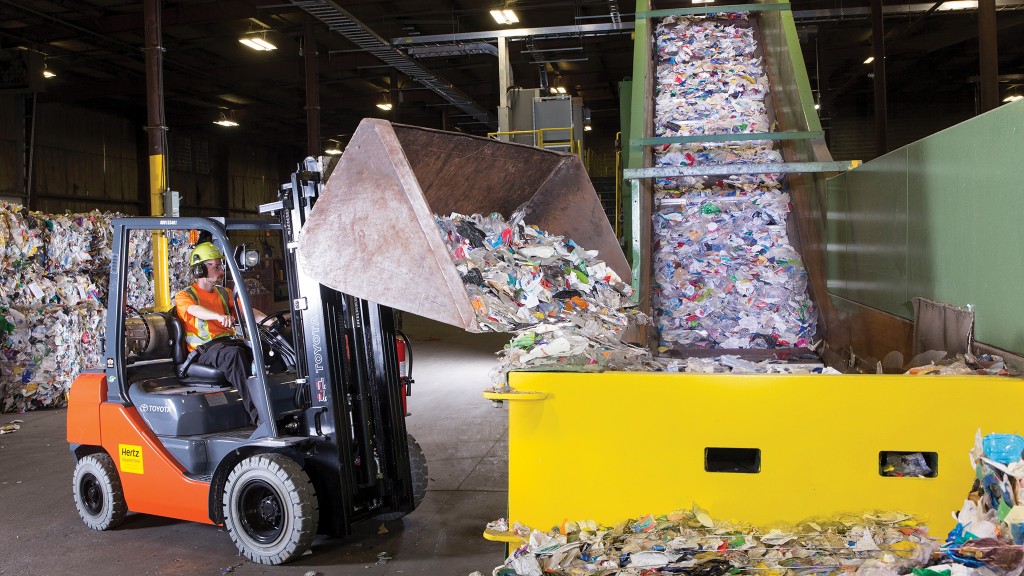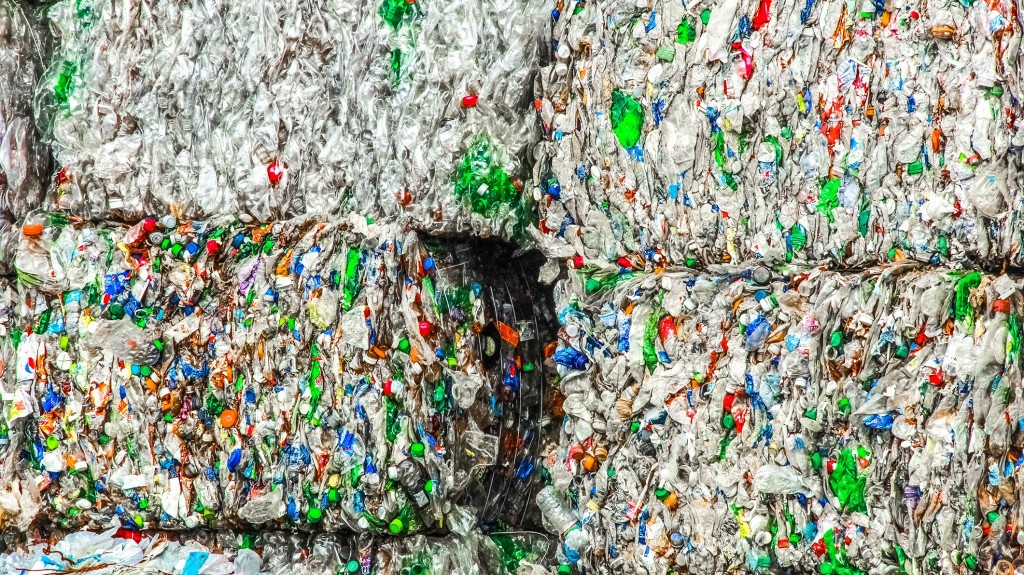Merlin Plastics is primed to collaborate on a closed loop for packaging
Founder Tony Moucachen is ready to work with the entire plastics supply chain to develop a sustainable circular economy

The Canada Plastics Pact (CPP), established this past spring, is part of the Ellen MacArthur Foundation's Plastics Pact Network - the most ambitious action that has ever been taken by the global plastics industry to solve our worldwide plastic waste problem. For the first time, the CPP brings together the entire plastics industry supply chain in Canada - from producers to goods and packaging manufacturers and retailers, to collectors and recyclers - all with a shared vision of a circular economy for plastics in which all varieties stay in the economy and out of the environment.
Because the packaging stream accounts for nearly 50 percent of all plastic waste produced in Canada, it is the immediate focus of the CPP's collective efforts. Initial goals, aiming for 2025, are to not only have significantly less plastic packaging in the system overall, but also to make it more sustainable for recyclers to recover the packaging that does remain in our system.
Among founding signatories from the recycling industry is Vancouver-based Merlin Plastics, Canada's largest diversified plastics recycling company. According to founder and President Tony Moucachen, getting the design-for-recycling element figured out is the right place to start, and they are primed to collaborate with all stakeholders.
Moucachen also believes that in order to achieve a truly circular economy, every business, organization and government entity that has a stake in the sector has to be involved in making collaborative decisions to help build a system, from the start, that will work for all parties.
A history in plastics innovation
Merlin Plastics started in 1987 in a 2,000-square-foot warehouse in Delta, B.C., and now has over a million square feet of recycling operations between six plants: two in B.C., and one each in Alberta, Ontario, California and Oregon.
"It was a very humble start-up," explains Moucachen. "We started with two people. Since then we have built a team of skilled workers with a wide range of technical skills including mechanical, electrical and chemical skills. We have developed and patented some of our pre-washing processes, and were the first on the west coast of North America to get FDA approval for PET for use in food grade applications. We were also the first in Canada to receive an FDA approval for our high-density product, HDPE, for use in food grade applications."
Moucachen is pleased to work in an industry that is aligned with his environmental values. The baseline concept in Merlin's business model is that packaging, regardless of whether it is plastics or not, should not end up in our natural environment. The model is also based around three core values: environmental, social and fiscal responsibility.
"The question is, how do you achieve those goals?" he asks. "You achieve them by working with like-minded organizations throughout the value chain, and by building an in-house team of employees that is also like-minded in its approach. Our industry throughout the value chain needs to nurture a culture of collaboration."
"For any business to grow, its goals must be aligned with the goals of the community, which are responsible for driving government policy. Having the best team is critical, but working toward the same community goals is equally important."
Adapting to a community's needs
Most of Merlin's incoming plastics volume comes from community collection programs. They also get material from IC&I sources and collectors. They receive both rigid and flexible plastics, most commonly numbers 1 (PET or Polyethylene Terephthalate), 2 (HDPE or high-density polyethylene), 4 (LDPE or low-density polyethylene) and 5 (PP or polypropylene). They don't recycle #3 plastic (PVC or polyvinyl chloride).
Moucachen says they respect each community's decision on how they choose to collect material and how they choose to finance their collection efforts. To Merlin, how material is collected is a community decision, and one that is based on the size of the community, the resources they have in place and a variety of other factors. Merlin supports whatever collection decisions the community makes and will provide solutions to suit them. If the community has an economy of scale to sort the product themselves, then Merlin will buy the sorted material, and if they do not have that economy of scale to be able to do the sorting themselves, then Merlin can provide the sorting service to them.
At the end of the day, Merlin's fundamental aim is to ensure that discarded packaging does not end up in our natural environment.
Making the CPP work for everyone
Among the Canada Plastics Pact's initial actions is to establish a standard list of "problematic" packaging and then eliminate it. By 2025, for all packaging that remains in circulation, it will be designed for reuse, recycling or composting. In the next four years, members have also committed to the use of 30 percent recycled content in all new plastic packaging and to a 50 percent plastic packaging recycling or composting rate.
For Moucachen, a key element that makes the pact truly significant is the collaboration among all stakeholders across the entire plastics supply chain, from massive retailers and packaging producers to recyclers and manufacturers, all striving toward the collective long-term goal of eliminating plastic waste entirely by establishing a sustainable circular economy.
"At Merlin Plastics, we believe that everyone has a vital role to play and everyone has to play their part," says Moucachen. "The Canada Plastics Pact is a vehicle that encourages people and corporations to make commitments, and it's going to keep them accountable. There have been quite a few corporations that have recently worked hard to make their packaging fully circular. It is my hope that all companies in the value chain will aspire to the same circular standard."
Moucachen says that there are three fundamental processes that will allow us to achieve the goal of a circular economy.
"The foundation and first step in this process is making sure that the product and packaging is designed to be recycled," he says. "The second step is to build the needed recycling infrastructure to collect and process the material and, lastly, you have to make sure the recycled product has a sustainable home and goes back into the economy. All of the stakeholders need to collaborate to make this a reality - industry players, government, recyclers, brand owners and the community. Effective corporate and government policy needs to be in place to encourage and reward the above behaviours.
"When I hear people talking about mandating post-consumer content without addressing the first two steps, this is a concern. It has to be carried out in an orderly and systematic fashion so the building blocks are in place at each step of the development process. This all needs to be done with the least amount of disruption to the consumer so that it avoids unwanted inflationary pressure on the consumer.
"For example, if we enact minimum PCR laws, this will increase demand for PCR. But if the increase in demand for PCR is not met by a concurrent increase in recycling infrastructure capacity, then the demand will outstrip supply, increasing the price of the commodity. This will backfire on all of us as the increased costs will need to be passed on to consumers, creating an unwanted inflationary situation."
The question facing all stakeholders is, "How are we going to address plastic waste today?"
Having representatives from the whole value chain collaborate together in good faith to achieve this goal is very appealing to Moucachen. He also agrees that the Plastics Pact is unique compared to anything that has come before it.
"The CPP is different. I was pleased to join because I believe that there is a clear understanding from everybody in the value chain that it is time to get serious."
The time for talk is clearly past, and the CPP is taking real action. Most recently, the CPP released nine Golden Design Rules to provide a clear framework and guidance for producers, and aims to drive innovation and scalable actions toward the pact's goals. This initiative already has the support of over 20 major retailers and consumer packaged goods companies - all committed to changing how they produce and use packaging.
With the CPP now firmly in place and real work underway, it appears that we may actually be on our way toward a sustainable circular economy model for plastics that is collaborative, does not put all of the responsibility for materials recovery on recyclers like Merlin Plastics, and which works for the sustainability of the entire supply chain.
This article was originally published in the July/August 2021 edition of Recycling Product News, Volume 29, Number 5.



